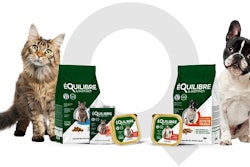
Return to normal life during the ongoing pandemic has proven elusive, and likewise pet owners may not return to pre-COVID shopping habits, according to a November 2021 survey by the American Pet Products Association (APPA). Even after a hypothetical end to the pandemic, 22% of pet owners plan to continue purchasing products online and have the pet food, treats and other items shipped to their homes. That’s double the pre-pandemic figure, although down from 26% who said they usually buy online for home delivery right now.
The majority, but less than half at 47%, said they planned to usually shop in-person at brick-and-mortar locations both now and after the pandemic. Before COVID-19 spread, 66% said they usually patronized a physical place. Other pet owners, 12%, plan to usually browse in store, then buy online post-pandemic, up from 9% beforehand. Another group of pet owners, 7%, plans to do the opposite and browse online, then purchase in a physical location after the pandemic ends.
Pet ownership up in the pandemic
The APPA survey also detailed how the number of people who got new pets in the United States continued to rise in 2021. In the survey, 14% of participants said they got a new pet because of the ongoing COVID-19 pandemic, up from 6% in June 2020. Younger demographic groups, Gen Z and Millennials, were more likely to get new pets than other age groups, especially those in urban areas and with children. However, 4% of respondents said they had to give up a pet while another 6% delayed getting a new dog, cat or other animals.
Twice as many survey participants said that the pandemic had a positive effect on their pet ownership as negative. However, the influence of the pandemic differed by age and economic groups. Baby boomers’ pet ownership was least affected by the pandemic. Only 5% if that age group got a new pet due to COVID-19, according to the survey. For Generation X, pet ownership grew 13%. The younger demographic groups saw the greatest gains in pet ownership. Millennials increased by 24% and Gen Z by 26%.
Compared to Gen X and baby boomers, younger pet owners worry more that they may need to spend less on pet food and treats in 2022 or change to a cheaper brand, according to the survey. Distinct generational differences arose related to economic issues.
Since early in the pandemic, APPA has surveyed U.S. pet owners about how COVID-19 influenced pet ownership. The percentage of millennials and Gen Z that are concerned how finances will affect their pet expenditures rose in the last survey.

















